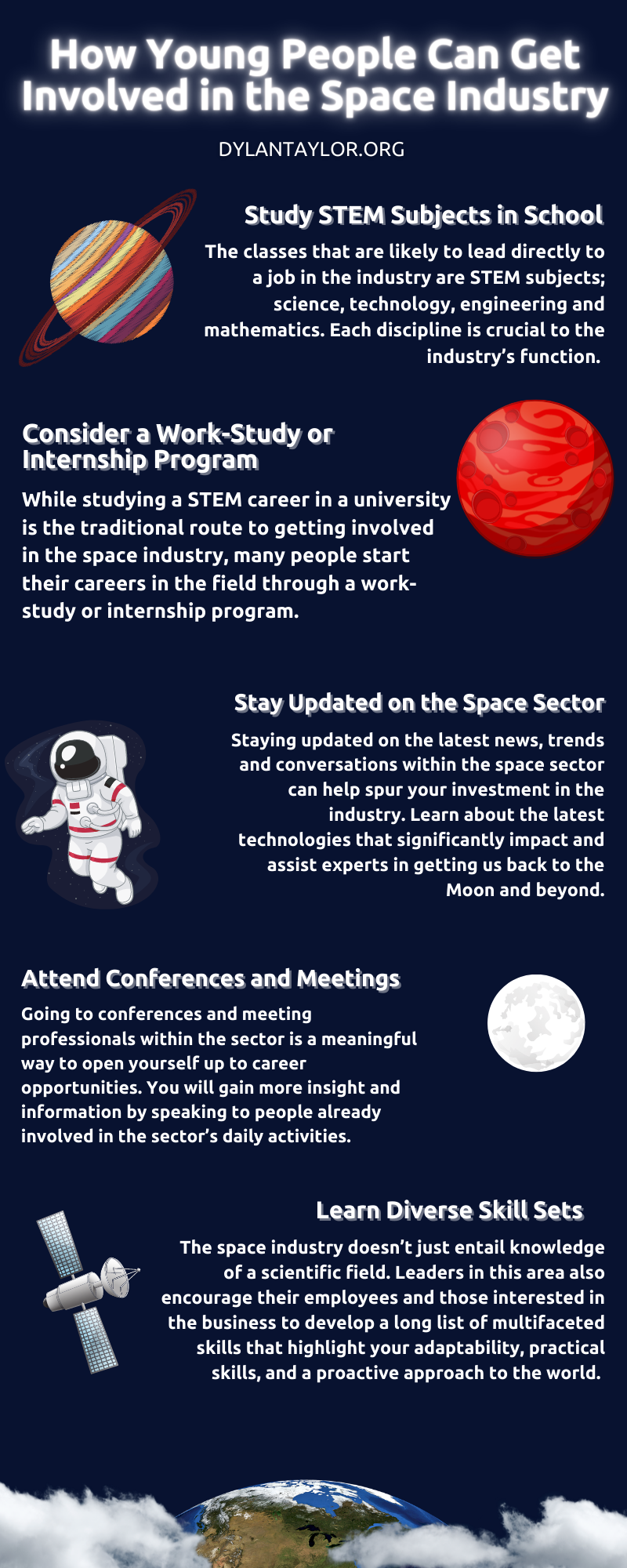With an estimated $1.4 trillion worth by 2030, the NewSpace sector is becoming one of the most prosperous sectors on the planet. As a result of the latest launches and missions making headlines in the news, the industry is scaling and becoming an intriguing prospect for students emerging into the professional world.
While many newcomers may think that it’s hard to succeed in the industry, but, in actuality, a clear-cut path for those interested and invested in the sector. Identifying your career goals is the first step towards harnessing what area of the space industry is the best fit for you.
Here are ways you can enter into an exciting career in the space sector:
Study STEM Subjects in School
The most traditional way to enter the aerospace sector is to achieve a background in one of its many disciplines. The classes that are likely to lead directly to a job in the industry are STEM subjects; science, technology, engineering and mathematics. Each discipline is crucial to the industry’s function. If you don’t know which niche of the space sector interests you the most, it’s essential to keep your options broad. If you need guidance, call and visit space companies of interest. Many of them offer students tours or information through appointments. This can help you learn more about the various aspects of a space job that aren’t always covered in educational settings.
Consider a Work-Study or Internship Program
While studying a STEM career in a university is the traditional route to getting involved in the space industry, many people start their careers in the field through a work-study or internship program. Major companies like Airbus and Rolls Royce are examples of companies within the aerospace and space industry that utilize these programs. Some work-study programs will even help fund these trainees through school. If you are already in a university STEM program, students can also apply for internships and other work placement opportunities to first-hand experience of the sector.
Stay Updated on the Space Sector
Staying updated on the latest news, trends and conversations within the space sector can help spur your investment in the industry. Learn about the latest technologies that significantly impact and assist experts in getting us back to the Moon and beyond. Reading about physical components that make up space shuttle systems like Teradata and the AI tools helping to operate and maintain space vehicles can help you better understand the industry. Search for space topics on social media. Organizations like The Space Foundation, The Planetary Society, The Space Science Institute, and The American Astronomical Society all have great resources to help you learn more about the sector and possibly even offer advice on careers in the field.
Attend Conferences and Meetings
Going to conferences and meeting professionals within the sector is a meaningful way to open yourself up to career opportunities. Although you can do all the reading you like, you will gain more insight and information by speaking to people already involved in the sector’s daily activities. Asking them questions and building relationships can help you understand how to get involved. Thanks to today’s online networking tools and social media platforms, it’s easier to connect with people in the industry, so you may be able to contact people who could serve as mouthpieces or mentors on specific space industry subjects. Many universities will also hold lectures and events, while big science institutions will host special events for the public across the United States.
Learn Diverse Skill Sets
The space industry doesn’t just entail knowledge of a scientific field. Leaders in this area also encourage their employees and those interested in the business to develop a long list of multifaceted skills that highlight your adaptability, practical skills, and a proactive approach to the world. Employers like to see these skills and well-rounded examples of your interests within and outside the space sector on your resume.
For example, learning a new language can be a crucial asset to have as the sector is an international player and regularly engages with other cultures. In many ways, collaborating with diverse cultures is a cornerstone of the NewSpace industry.
Students or incoming professionals may also want to take advantage of hands-on, open-source projects to get experience on the technicalities and collaboration needed in this career path. You can find projects through NASA Open Space Software or the Open Space Project.
While learning a new field of study may seem daunting, it’s important to stay determined and go where your interests lead you. As the space industry evolves, new talent will be in demand and we look forward to having determined team members with us on the journey to the stars.







